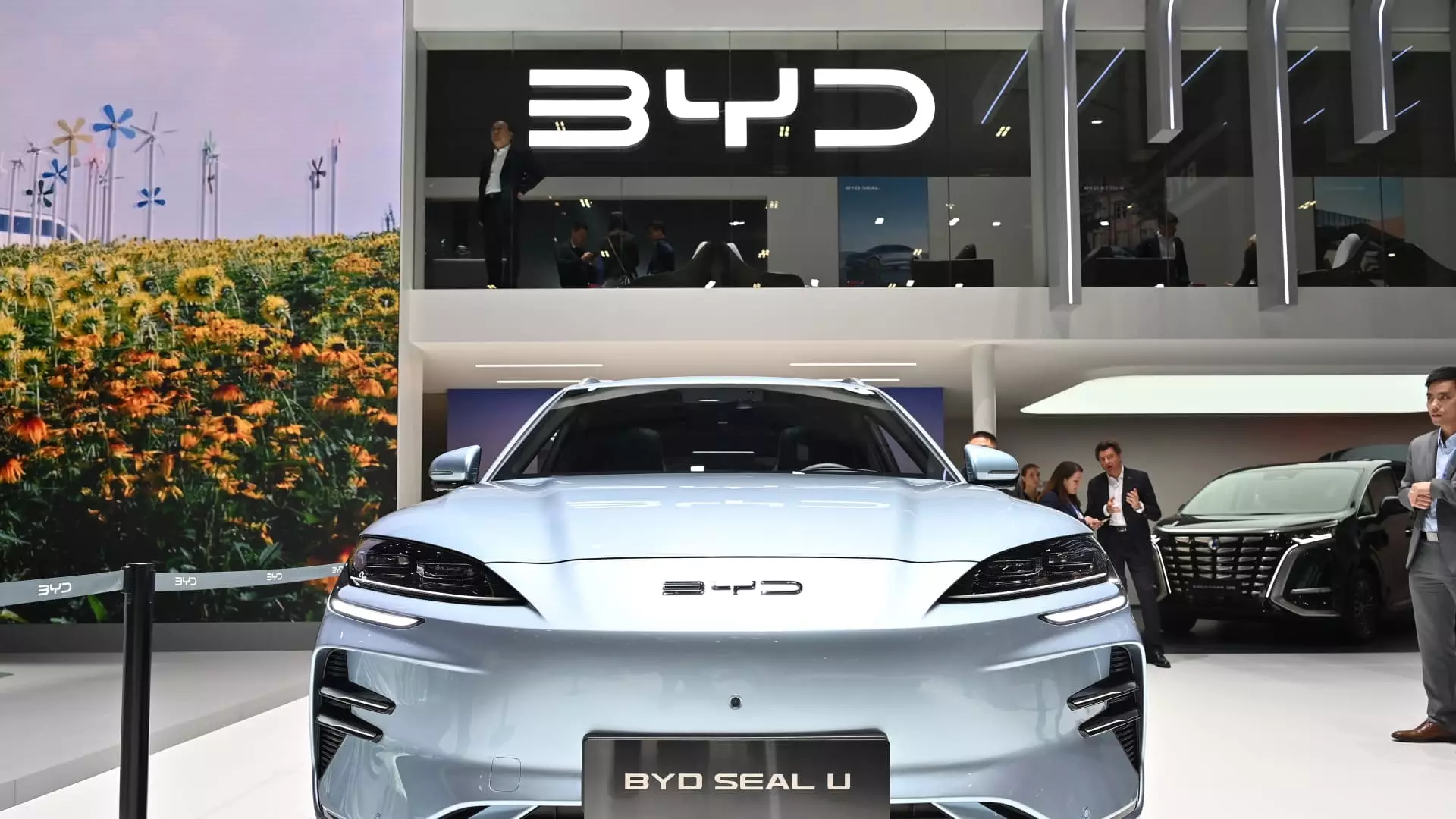The European Union recently confirmed its decision to increase tariffs on electric vehicles imported from China. The European Commission had initially announced plans for these levies in June after determining that Chinese battery electric vehicle producers were benefiting from what was deemed as “unfair” subsidization. The tariffs, which have now been adjusted to range from 17.4% to 37.6%, are set to take effect on Friday. This move by European regulators could potentially affect a wide range of automakers, from Chinese giant BYD to European brands manufacturing cars in China, including U.S. automaker Tesla.
The decision to hike tariffs comes at a time when Chinese automakers have been aggressively expanding into the European market with competitively priced electric vehicles. This poses a threat to traditional European automakers, many of which have been slow to embrace electric vehicles. The European Commission accuses these Chinese carmakers of benefiting from “unfair subsidisation,” which has raised concerns among European automakers about maintaining their competitive edge in the market.
In response to the tariffs, Chinese electric vehicle manufacturers have expressed their concerns. Nio, a prominent Chinese EV maker, stated that while it is currently keeping its prices stable for cars sold in Europe, it cannot rule out the possibility of price adjustments in the future due to the imposed tariffs. Another Chinese EV company, Xpeng, assured customers awaiting deliveries or placing new orders before the tariffs take effect that they will be protected from price increases. However, the company did not provide a clear stance on whether prices would be raised as a result of the levies.
Tesla, which has a factory in Shanghai and sells vehicles in Europe, had previously indicated that it would likely increase the prices of its Model 3 in Europe due to the tariffs. The specifics of the tariffs facing Tesla have not been disclosed by the EU, but the U.S. automaker is expected to face individual duty rates. Other automakers, such as BYD, have also expressed plans to establish manufacturing facilities in Europe to offset the impact of tariffs.
Chinese and EU officials have engaged in discussions regarding the tariffs, with Beijing criticizing the EU’s decision as a “protectionist act.” The Chinese Commerce Ministry has urged both sides to work towards a mutually acceptable solution. Chinese EV manufacturers have reiterated their commitment to the European market, with some considering establishing local manufacturing capabilities in Europe to mitigate the effects of the tariffs. BYD, for example, announced plans to open its first European factory in Hungary.
The EU’s decision to hike tariffs on Chinese electric vehicles has significant implications for both Chinese and European automakers. The move reflects the growing competition in the electric vehicle market and the challenges faced by traditional automakers in adapting to these changes. As negotiations continue between China and the EU, the future of the electric vehicle market in Europe remains uncertain, with potential shifts in manufacturing and pricing strategies by key players in the industry.


Leave a Reply